A station of their own: women in the media in Cambodia
In Cambodia, gender roles are largely ruled by tradition. Khmer culture says a woman should speak softly, walk lightly, always be well mannered and stay in her home—not exactly the qualities of a good journalist. That might be why relatively few women have entered the field in the past. But one broadcaster, the Women’s Media Centre (WMC), is defying tradition. The non-profit NGO’s radio and television programs address a wide range of issues, with a special focus on the roles and rights of Cambodian women. onMedia’s Kyle James talked with Khut Sokhoeun, WMC’s radio production supervisor—and a man, about working with women journalists in this male-dominated society and how they add to the public conversation.
![]() read more
read more
Connecting journalists with hostwriter
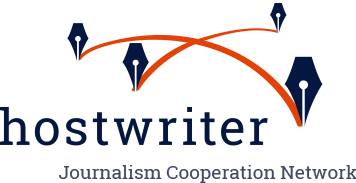 You’re planning your next overseas assignment. You’re looking for strong story ideas, good contacts with expert local knowledge, and maybe a couch or bed in the spare room of a journalist-friendly house to keep travel costs down. If this sound familiar, then the soon to be launched international journalism network called hostwriter might be an answer.
You’re planning your next overseas assignment. You’re looking for strong story ideas, good contacts with expert local knowledge, and maybe a couch or bed in the spare room of a journalist-friendly house to keep travel costs down. If this sound familiar, then the soon to be launched international journalism network called hostwriter might be an answer.
Hostwriter is the brainchild of German journalists Tabea Grzeszyk, Tamara Anthony, Sandra Zistl. The pitch is simple: find a story, find a colleague, find a couch.
The aim of hostwriter is to create a network of professional journalists around the world who can help each other, share information and contacts, collaborate to produce stories together, or even let a colleague stay in their home.
![]() read more
read more
Local news site network growing fast in Asia
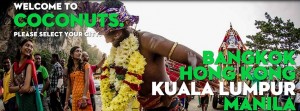 English speakers in big Asian cities can buy English-language newspapers but many still want more detailed information about what’s happening in their own neighborhoods. That was an unfilled niche that American journalist Byron Perry saw in his adopted city, Bangkok. In 2011, he launched Coconuts out of his apartment to provide local news in English. Now he’s got sites in five Asian cities and big plans for the future.
English speakers in big Asian cities can buy English-language newspapers but many still want more detailed information about what’s happening in their own neighborhoods. That was an unfilled niche that American journalist Byron Perry saw in his adopted city, Bangkok. In 2011, he launched Coconuts out of his apartment to provide local news in English. Now he’s got sites in five Asian cities and big plans for the future.
![]() read more
read more
Adapting the HuffPost to a context of political transition
 After the political uprising in Tunisia in January 2011, the political and media landscape changed dramatically. New websites, radio and TV channels sprung up. And political discussions, once taboo, invaded every corner of daily life. In such a dynamic context of transition, how can yet another website exist and find an audience?
After the political uprising in Tunisia in January 2011, the political and media landscape changed dramatically. New websites, radio and TV channels sprung up. And political discussions, once taboo, invaded every corner of daily life. In such a dynamic context of transition, how can yet another website exist and find an audience?
The Huffington Post, founded as a news agregator and blog platform in the US in 2005, gave it a try and entered the market. Launched in June 2013, its Maghreb edition has quickly gained a reputation among users, not only for doing things differently compared to other Huffington Post editions, but for also being different to other online media in North Africa. Covering mainly Tunisia at the moment, the young team is planning to expand its coverage to Algeria and Morocco soon.
What is probably most striking when you look at the website is the “most read” section. Rather than lifestyle, food and fashion in other HuffPost editions, in the Maghreb version you’ll find politics, politics, and more politics. “We’re different from other Huffington Posts because the context is different,” explains editor-in-chief Houeida Anouar. “Every edition is free to take from the HuffPost DNA what it likes and to adapt it to its needs.”
![]() read more
read more
“Recipients’ ability to judge the quality of news is very limited”
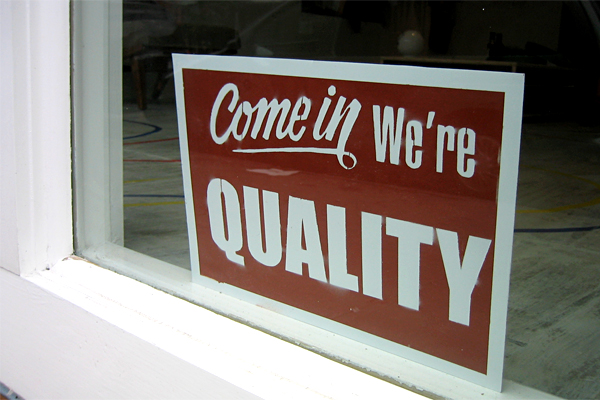
You can hear this sentence quite often when it comes to the debate regarding the future of journalism: “We need to offer quality journalism in order to survive”. The problem is that the understanding of quality in journalism is quite vague. The arguments are often based on anecdotes and intuition rather than on research and rational thinking. What can journalism research do about it? We’ve found some answers to this question in the latest research paper by Wolfgang Schweiger and Juliane Urban of the Institute of Media and Communications (Institute of Applied Sciences Illmenau). DW Akademie’s Steffen Leidel talked to Wolfgang Schweiger about the surprising findings and the notion of quality in journalism.
![]() read more
read more
Gregor Aisch: ‘Journalists need to overcome their fear of hackers’
 Interactive visualizations and info-graphics are gaining popularity in the media. More and more journalists are becoming interested in producing data-driven stories on their own or with the help of developers. So what do aspiring data journalists need to know? What do they need to keep in mind when working with developers, how much programming do journalists actually need to understand – and what are the best tools to get started?
Interactive visualizations and info-graphics are gaining popularity in the media. More and more journalists are becoming interested in producing data-driven stories on their own or with the help of developers. So what do aspiring data journalists need to know? What do they need to keep in mind when working with developers, how much programming do journalists actually need to understand – and what are the best tools to get started?
DW Akademie’s Natalia Karbasova talked to the German visualisation architect and interactive news developer Gregor Aisch. Among other things, Gregor has worked on the development of Datawrapper, a tool that allows journalists to build simple interactive charts. He also develops visualizations for media organisations such as Deutsche Welle and Zeit Online.
“Journalists need to overcome their fear of the so called hackers,“, says Gregor. “This might sound funny to some, but many people still have these mental image of criminal suspects spending their days and nights writing viruses and trying to crack security systems of banks and governments”.
![]() read more
read more
Marcus Bösch: Newsgames let your audience play with news
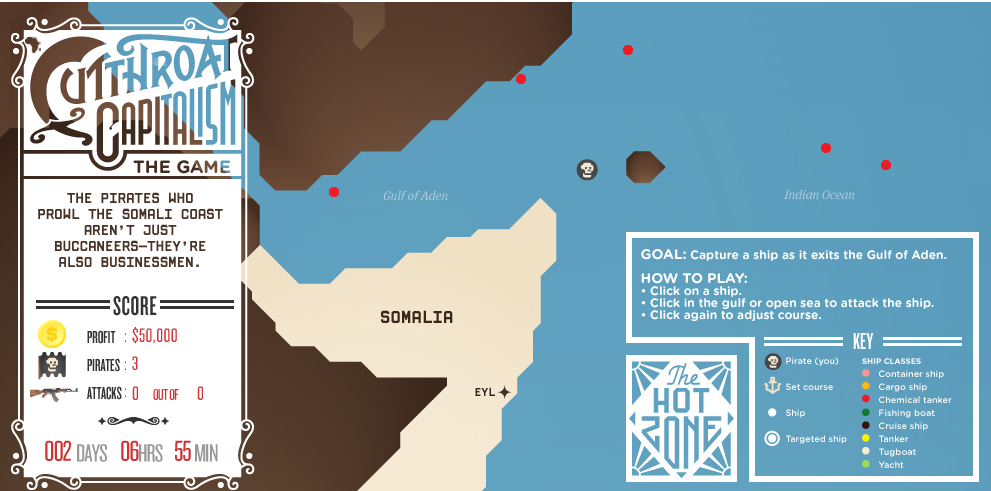 From a playable political cartoon to a simulation of Osama bin Ladens death – newsgames are embraced by the media to playfully engage the audience in important events. In other words, newsgames are games put to use in the context of journalism.
From a playable political cartoon to a simulation of Osama bin Ladens death – newsgames are embraced by the media to playfully engage the audience in important events. In other words, newsgames are games put to use in the context of journalism.
“Newsgames will not replace classical approaches to news but they can and will enhance and augment digital journalism in the 21st century,” says Marcus Bösch. 
The freelance journalism trainer has led numerous workshops for DW Akademie and is the co-founder of The Good Evil game studio. DW Akademie’s Natalia Karbasova spoke with Marcus Bösch about the idea behind newsgames, best practices and the future of newsgames.
![]() read more
read more
Developing open source software for newsrooms
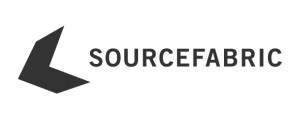 News organisations worldwide are more often than not trying to answer these questions: which content management system is best for us? Should we develop a technical solution ourselves or should we use open software? Will this open system be flexible and innovative enough?
News organisations worldwide are more often than not trying to answer these questions: which content management system is best for us? Should we develop a technical solution ourselves or should we use open software? Will this open system be flexible and innovative enough?
Sourcefabric says it has answers to those questions. This non-profit organisation is headquartered in Prague and develops open source software for newsrooms. The idea behind it is simple. Although a newsroom in Berlin can be totally different from one in Baghdad or Bangkok, all newsrooms function in a similar way regardless of their location. Any newsroom needs to gather, filter, publish and archive information.
Media organisations from Ghana to Switzerland and from Brazil to Belarus are using Sourcefabric’s opensource software such as Newscoop and Airtime. A network of developers worldwide are continuously refining their products. DW Akademie’s Steffen Leidel spoke to Sourcefabric’s Adam Thomas about their software and why their tools and systems are proving successful in media organisations, particularly in developing countries.
![]() read more
read more
Entries still open for German Development Media Awards
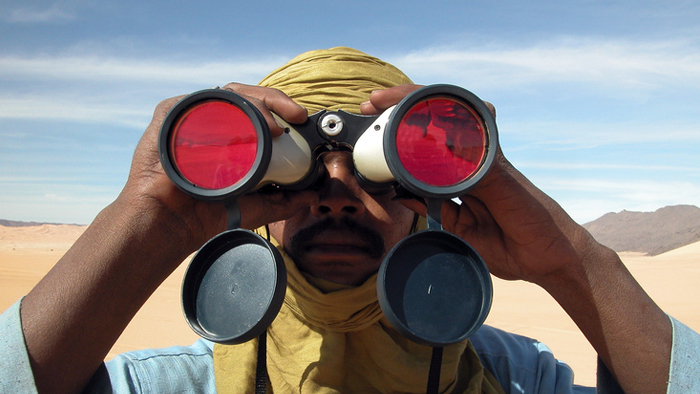 Have you produced an outstanding story on development or human rights issues, or know a colleague who should be nominated for their reporting in these fields?
Have you produced an outstanding story on development or human rights issues, or know a colleague who should be nominated for their reporting in these fields?
Entries for the German Development Media Awards are still open – the deadline for submission is May 31, 2013.
The awards champion independent media across the world and put the spotlight on journalists telling important stories affecting their communities, countries and regions.
The awards are a new initiative by the German Federal Ministry for Economic Cooperation and Development (BMZ) and Germany’s international broadcaster, Deutsche Welle.
Six prizes worth 2,000 euros each will be presented as part of the awards – one each to a journalist from Africa, Asia, Latin America, the Middle East, Eastern Europe and Germany.
![]() read more
read more
Appel à candidature
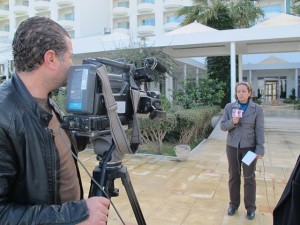 Dans le cadre du programme de coopération germano-tunisienne en matière de formation de journalistes et de communicateurs, la Deutsche Welle Akademie organise un atelier sur le thème “Communication politique”.
Dans le cadre du programme de coopération germano-tunisienne en matière de formation de journalistes et de communicateurs, la Deutsche Welle Akademie organise un atelier sur le thème “Communication politique”.
![]() read more
read more



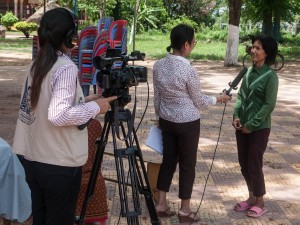





Feedback